Tennis Court Resurfacing In Georgia & South Carolina
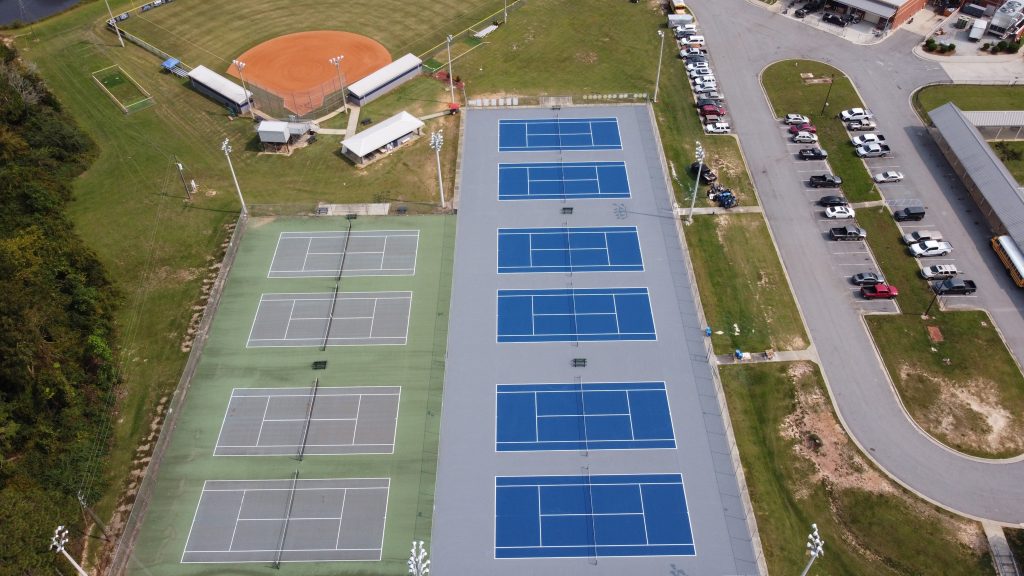
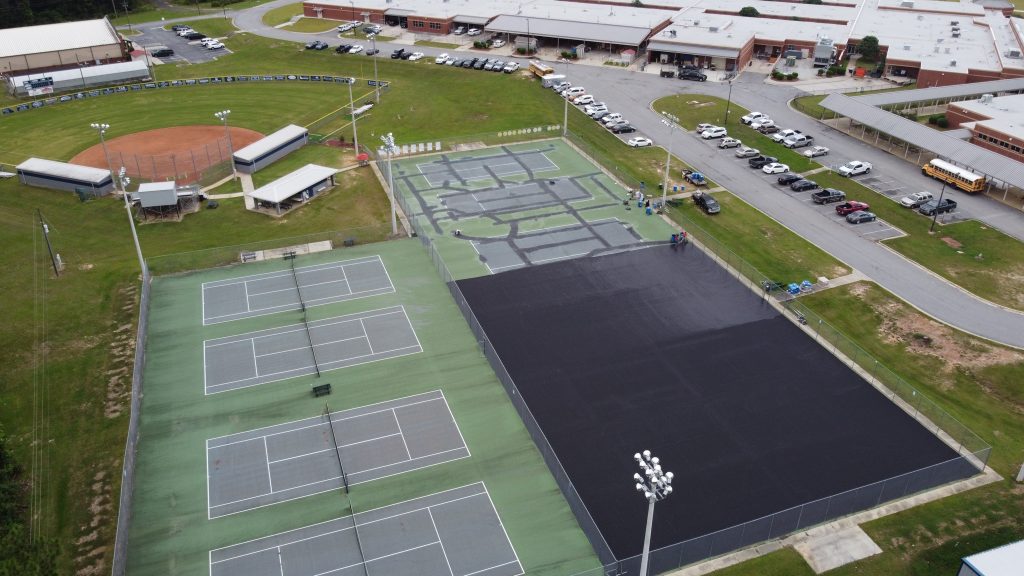
Repair Services for Tennis Courts
RiteWay Crack Repair
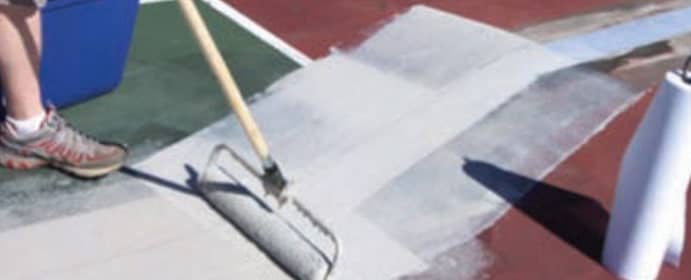
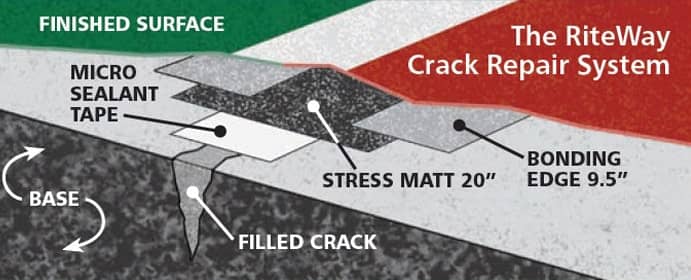
Conventional crack repair procedures might produce ugly patches that weaken the court’s integrity, necessitating repeated and expensive repairs. Tennis court cracks grow and contract with temperature variations, freezing and thawing cycles, and age. Talbot Tennis uses the RiteWay Crack Repair System to provide a long-lasting, resilient, and smooth repair, which comes with a multi-year warranty against the re-occurrence of the same crack (new cracks may appear and old cracks may extend). RiteWay is a multilayer tennis court surfacing system used as part of the resurfacing process, resulting in an undetectable repair that is not impacted by weather or temperature. RiteWay tennis court resurfacing is so distinctive that many owners cannot believe how well it works. The RiteWay System employs micro-technology that permits existing cracks in your court to move without causing damage to the repair. It not only prevents cracks from recurring, but it also removes dead patches, hollow noises, and bubbling.
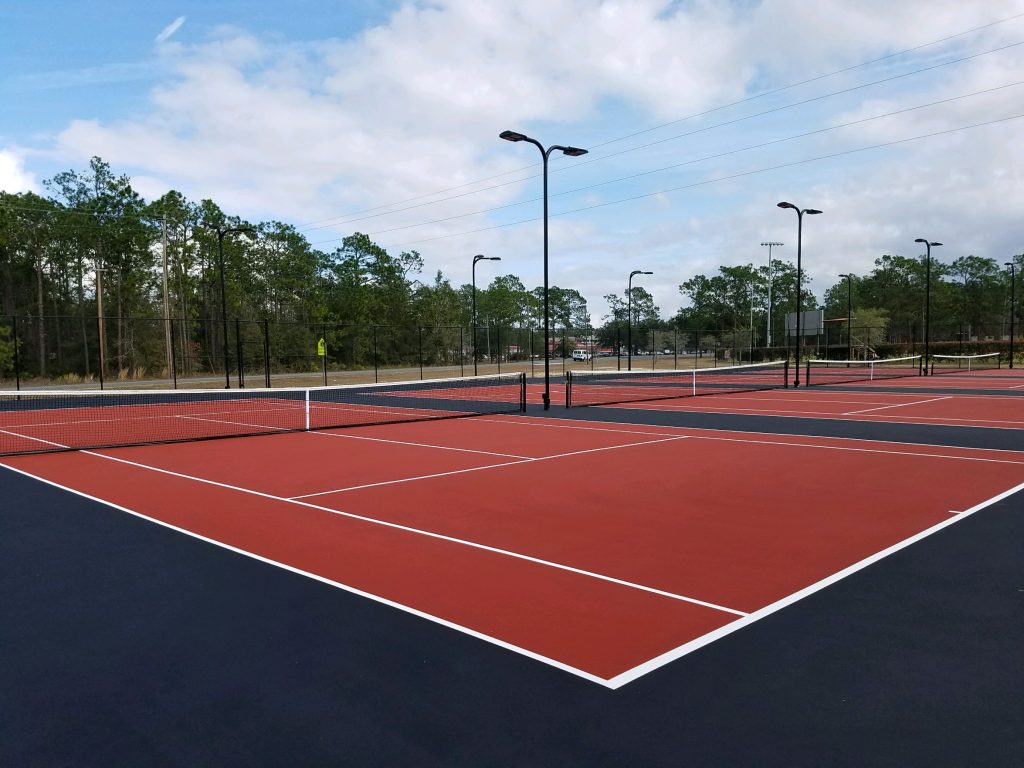
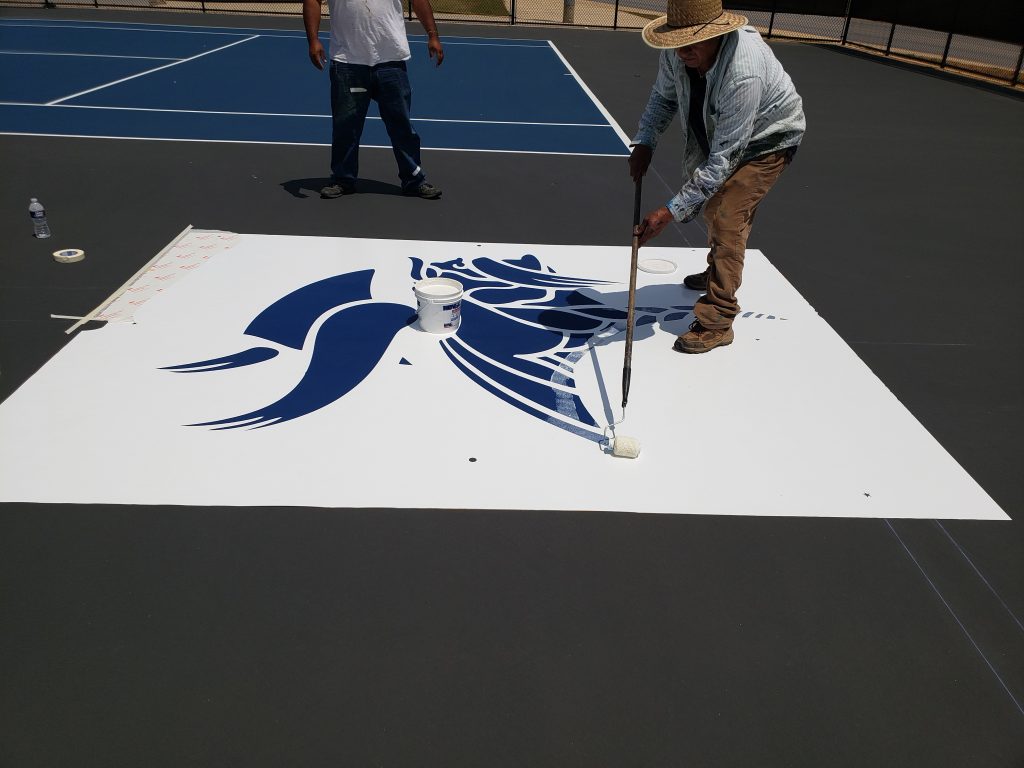
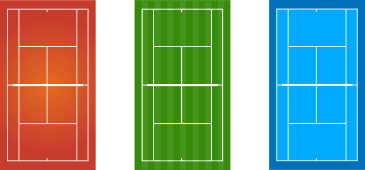
Choose Tennis Court Color
Frequently Asked Questions About Tennis Court Resurfacing Georgia
Are There Any Special Considerations for Tennis Court Resurfacing in Georgia or South Carolina Regarding Weather Conditions?
Any tennis court resurfacing contractor in Georgia or South Carolina will tell you that the weather is a crucial aspect to consider before getting any work done on your courts. It is not advisable to work on resurfacing in autumn or winter due to the cold and wet conditions. For best results, lay the courts in spring or summer. Experts advise that it should be at least 50ºF and rising during the application over the next 24 hours.
How Often Should I Consider Resurfacing My Tennis Court in Georgia or South Carolina?
All tennis courts need occasional resurfacing, but the frequency depends on factors like the type of court and how well it is maintained. However, in general, tennis court resurfacing in South Carolina or Georgia should be done every 4–8 years. While hard courts last longer, clay surfaces need more frequent resurfacing, but if you want your court to last longer, ensure proper care and maintenance. Clean, remove mold, fill cracks, and watch out for any signs of deterioration.
What Factors Should I Consider When Selecting a Contractor for Tennis Court Resurfacing in Georgia or South Carolina?
Courts are quite an investment, and you want to make sure that you hire the best tennis court resurfacing contractor in South Carolina or Georgia. The following are factors to consider.
- Experience. Make sure that the company has been in business for a long time and has handled various jobs, working on different courts.
- Use of quality products. Reputable contractors use the highest quality materials that are safe for the environment and also help your courts last longer.
- Licensure and insurance. This guarantees your safety and that of the people working on the project, so remember to ask for documentation.
- Glowing reviews. To be sure of the quality of work, you should check client testimonials for reputable contractors with positive reviews.
What Are the Different Types of Tennis Court Surfaces Commonly Used in Georgia and South Carolina?
The most common tennis court surfaces you will find in Georgia and South Carolina include clay, grass, and hard courts. Hard courts are some of the most popular worldwide and are made of rigid materials; hence, they are easy to maintain and offer more consistency than other surfaces. Clay and grass courts are also common in the region but need more regular maintenance than hard courts. Expert tennis court resurfacing contractors in Georgia and South Carolina are experienced in handling different court surfaces, regardless of the type.
Do you have more questions regarding tennis court resurfacing in Georgia or South Carolina? Contact our professional contractors at Talbot Tennis to help revamp your court surface.
